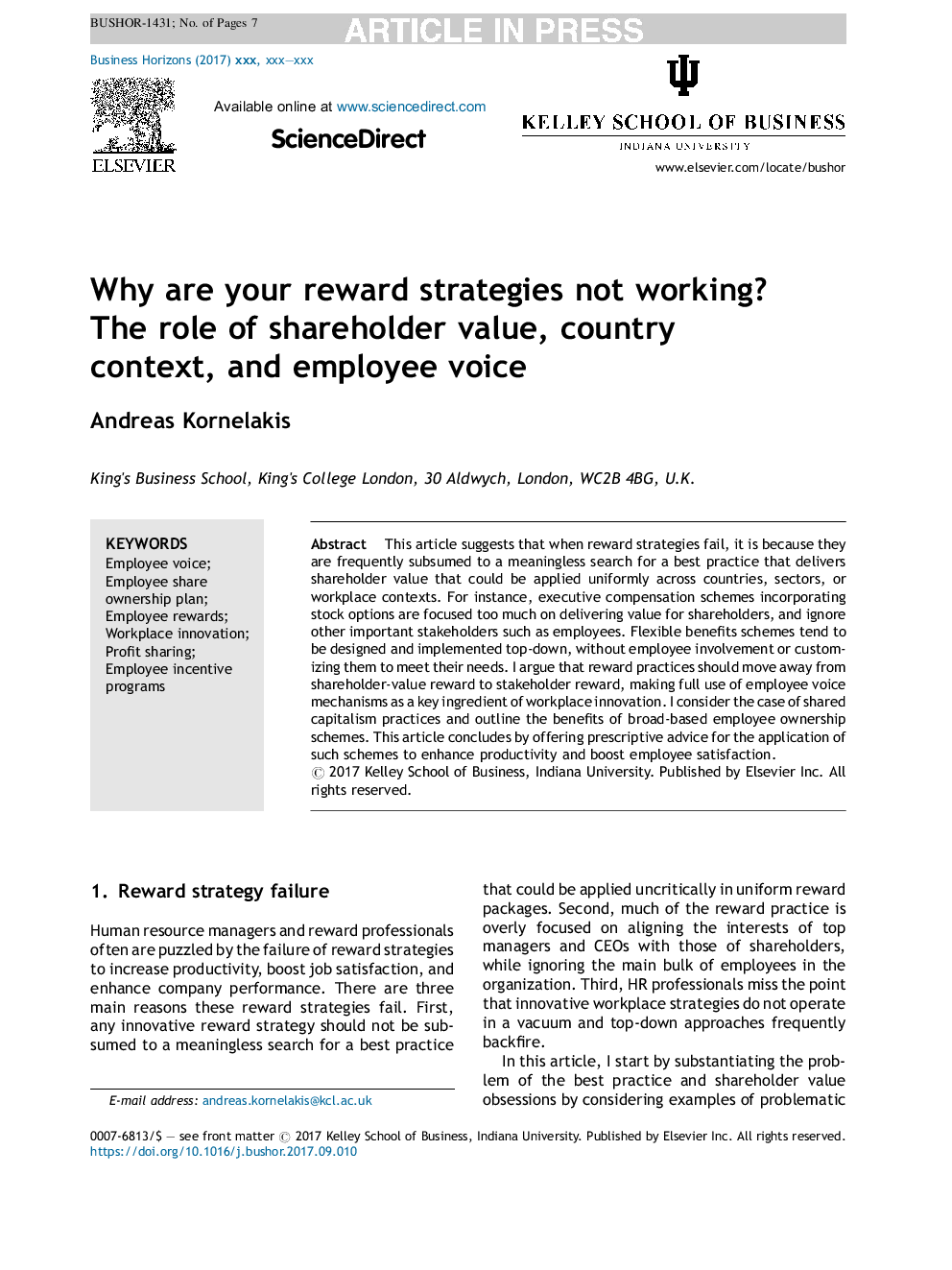| Article ID | Journal | Published Year | Pages | File Type |
|---|---|---|---|---|
| 7423328 | Business Horizons | 2018 | 7 Pages |
Abstract
This article suggests that when reward strategies fail, it is because they are frequently subsumed to a meaningless search for a best practice that delivers shareholder value that could be applied uniformly across countries, sectors, or workplace contexts. For instance, executive compensation schemes incorporating stock options are focused too much on delivering value for shareholders, and ignore other important stakeholders such as employees. Flexible benefits schemes tend to be designed and implemented top-down, without employee involvement or customizing them to meet their needs. I argue that reward practices should move away from shareholder-value reward to stakeholder reward, making full use of employee voice mechanisms as a key ingredient of workplace innovation. I consider the case of shared capitalism practices and outline the benefits of broad-based employee ownership schemes. This article concludes by offering prescriptive advice for the application of such schemes to enhance productivity and boost employee satisfaction.
Keywords
Related Topics
Social Sciences and Humanities
Business, Management and Accounting
Business and International Management
Authors
Andreas Kornelakis,
